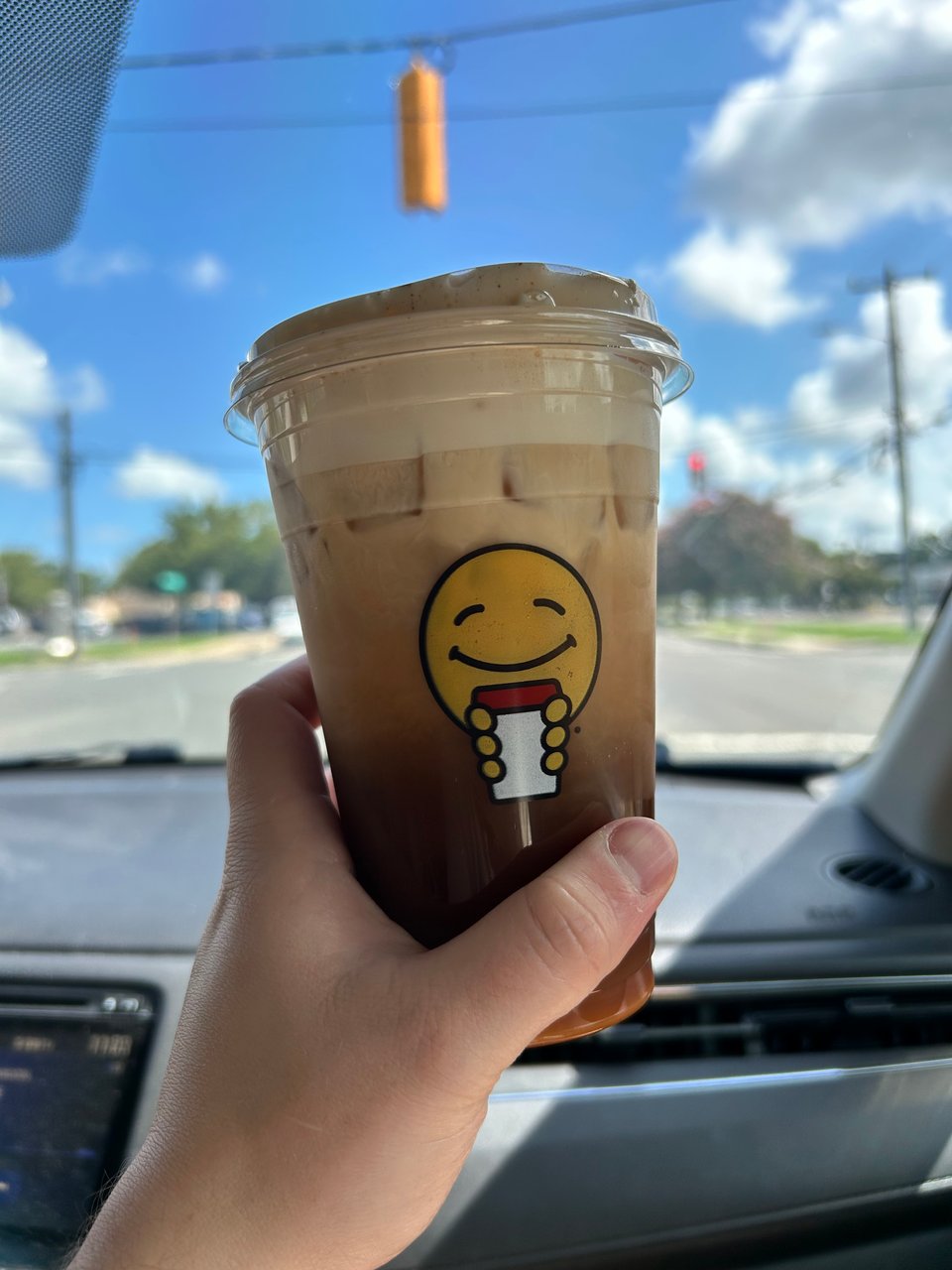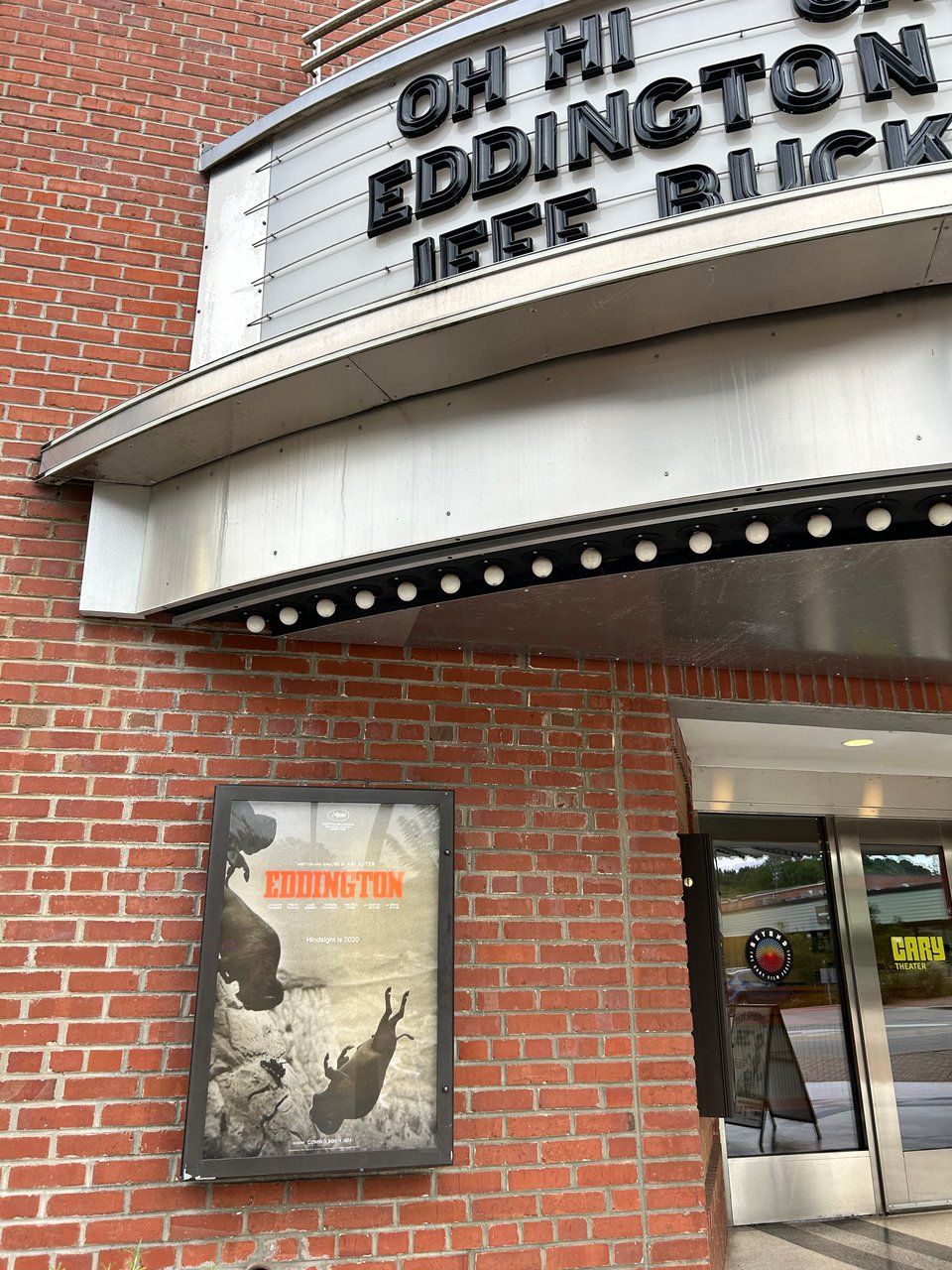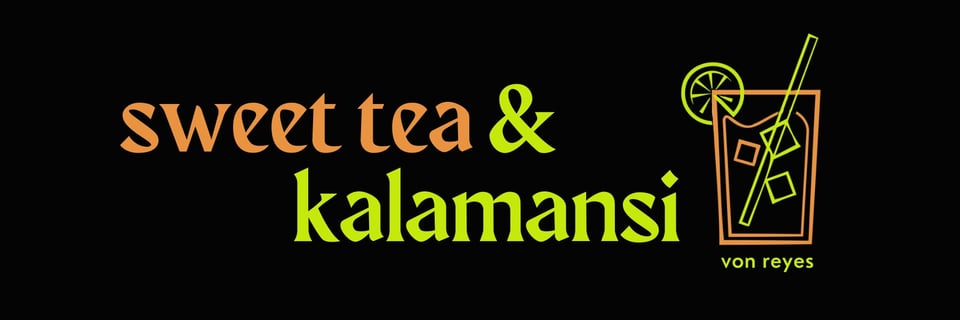go see eddington
because we really do need to free each other's hearts
hey y’all,
i got my first pumpkin coffee of the season. a place called scooter’s just opened in durham, and i swear it’s the best pumpkin cold foam i’ve tried in recent years. it was a little glimmer in what feels like a weeks-long storm. the glimmers don’t last as often as they used to.

i took last week off of sweet tea & kalamansi, because i really didn’t feel like i had anything to say. i didn’t go to the pottery studio that much. i didn’t go to pilates. i half-heartedly worked, and when i wasn’t working, i lost hours on my couch. i started thinking about when this current wave of darkness set in, and it was just after seeing eddington.

i saw it at a historic theater in downtown cary last week and i haven’t stopped thinking about it since. i’m struggling to put my thoughts to the page. it is, perhaps, the single most important movie of the last 5 years and ari aster is one of the greatest filmmakers of the modern age. horror fans already knew this, but eddington cements him as one of the greats irrespective of genre.
his ability to say so much with so little is aspirational. eddington covers (almost) every axis of inequity and human suffering in the united states with brilliant subtlety and political efficacy. eddington addresses the rifts of divide with a nuance that most attempts lack. i left the theater with a delirious, borderline hysterical, euphoria that was equal parts validation and despair. i worry general audiences won’t “get it”, yet seeing these truths on the global stage for all to witness gave me a flood of affirming grief.
our protagonist is middle-aged joe cross (joaquin phoenix), in his 7th year of service as the sheriff of eddington, new mexico. he is following in the footsteps of his father-in-law, whose legacy is a heavy shadow over joe’s career. his overbearing QANON-pilled mother-in-law is suffocating him and his wife, louise (emma stone). he is a salt-of-the-earth guy who has been in eddington all his life, and takes his oath to protect and serve seriously. he loves his wife dearly, regardless of her severe mental illness.
we are first introduced to him sitting in his police truck in the dark, watching a youtube video about how to convince your partner to have a baby with you. aster’s use of the environment to tell stories makes me sick with envy as an artist. we understand so much about who joe is from this opening scene. he wants to have a baby, his wife does not. he works late often, but there isn’t a lot of action out here in the desert. eddington is on the county line of pueblo, a sovereign indigenous municipality with its own police force.
pueblo’s finest approach him in their own police cruiser and demand that he puts on a mask. they offer him one through the car window. he attempts to politely refuse, and is threatened with violence. he placates, puts it on, and waits for them to pass before ripping it off in disdain. this opening sequence sets the tone for the whole film — acts of community violence are shrouded in politeness to generate understanding for the aggressor and reduce empathy for the oppressed.
this is a spoiler free review, because i really do want you to go see it. i won’t describe any more scenes, but what i will tell you is that this is a film about the coordinated, tactical, global effort of white dominance. this effort is well-funded, well-connected, and well-designed.
it is also about the insidiousness of white supremacy; how it lives inside of us all with a ubiquitous quiet that it orchestrates its own normalization. the global effort knows this, too, and is attempting to tap into and validate these conditions already festering within us. it is our life’s work to purge ourselves of it.
joe is a neighbor. he’s a friend. he’s a loving husband. he’s a community member. his staff generally seem to like him. when his worldview, and therefore his positionality, is upended by the pandemic and the brutal murder of george floyd, he relies upon the tools of oppression to free himself. he’s the protagonist, whose lens we view every action through, so we are pre-destined to root for him. ultimately, what we find is that he is afraid.
he is desperately afraid. he denies COVID’s existence because he is afraid. he rallies against the mayor (pedro pascal) and the governor because he is afraid. he turns a blind eye to the suffering of his wife because he is afraid. he is not ivory-tower educated, and so much of what is happening around him is beyond his comprehension. he is trying to make sense of what he sees with the tools he has.
there is no shining star leftist organizer-educator in eddington to give him different tools. i believe this to be a deliberate choice by aster, because that person does not exist. there are only pedantic, performative protestors with no connections to the communities they claim to be defending. they, too, are afraid.
we are failing to unify and liberate because we do not consider each other fellow countrymen. we never have. the great experiment has never allowed it. there are so many moments throughout the story where deep empathy and connection were possible, and instead those moments were met with surveillance. a phone camera and a sneer where an out-stretched hand should have been. and that is actually aster’s point.
“This is a movie about people living in different realities who are unreachable to each other,” Aster says, musing that the modern internet has changed humanity in ways we likely still don’t fully understand. “I do think the technological revolution is a mostly dehumanizing one,” he adds.
- story by Jake Kleinman for WIRED,
Culture. Jul 18.
aster is not the first to explore this, but is perhaps the best to attempt it for general audiences. a competitor might be bo burnham with inside. i felt a similar bottomless well of frozen anguish when i first heard this song. i half-expected it to be the credits song for eddington.
it is a significant indicator of how bad things are when the white men are talking about it so publicly. one could argue that bo burnham and ari aster are great beneficiaries of our current caste-based, racially violent economic system, and yet they critique it with reckless abandon. there is some bravery in that. i certainly can’t get this message across as widely as they can.
“I don’t know about you guys, but…I’ve been thinking recently that…that you know, maybe, um, allowing giant digital media corporations to exploit the neurochemical drama of our children for profit…You know, maybe that was, uh…a bad call by us. Maybe…the flattening of the entire subjective human experience into a…lifeless exchange of value that benefits nobody, except for, um, you know, a handful of bug-eyed salamanders in Silicon Valley…Maybe that as a…as a way of life forever…maybe that’s, um, not good.”
- bo burnham, inside. 2020.
ultimately, i think eddington is a film about cycles, and how hard they are to break. cycles of childhood sexual abuse, cycles of systemic racism, cycles of corporate greed and the people’s resistance, cycles of power shifting in name only, but ultimately serving the ruling class. it holds a mirror to all of us and asks us: what are you willing to do to break these cycles? what will it take for you to put your fucking phone down and love thy neighbor?
i’m in a slump right now, because i have been carefully guarding the vacuum-sealed boxes of grief in my mind since november. they’re the same boxes i’ve been opening and closing for as long as i can remember. every single time i illuminate some new awareness of injustice in the world, i have to put it in a new box. they used to be made of cardboard, and then i had to reinforce them with wood. and then i put the wood boxes inside military grade titanium.
the raw, unflinching heartbreak of eddington was like a nuclear bomb detonating all over my boxes. my grief is scattered all over the floor. i can’t pick up all the things without looking at them. so i’m just sitting on the floor and looking at them. my life is permanently defined by pre-COVID versus…whatever we’re doing now. my whole world came to a screeching halt, and fundamentally changed overnight. i can never change it back. it will never be the same.
i cannot pretend that people aren’t dying of preventable disease. i cannot pretend that police violence against Black people hasn’t increased since 2020. i cannot pretend there are no concentration camps in the united states. i cannot pretend that i am not afraid anymore. i don’t think i’m the type of person to fake it until i make it, and i’m screaming out into the world for anyone to be feeling it the way i’m feeling it.
eddington forced me to reckon with how utterly devastated i am by the genocidal violence of the white ruling class on all of us. this devastation, i think, is necessary for us to free ourselves. despite how metaphysically painful the awareness is, i don’t want to unknow any of it. i just want us all to carry it together. i hope every single person watches this film and walks out of it as aggrieved as me. and i hope that through that grief, the realization that it doesn’t have to be like this will bloom.
in the end, i was rooting for joe. i wanted him to make different choices at every step of his journey. i wanted him to see that he’s a victim in all this too, and that his non-white neighbors are not his enemy. ari aster wants you to see that too. it makes it all the more resonant when he doesn’t make different choices. he reacts exactly how someone like me would expect him to in his position and under these current conditions. i wanted my assumptions of him to be wrong. i wanted my empathy for his suffering to be enough to move him.
the thing about joe, though, is that he’s a character in a film whose story has already been written. there is nothing that i could have done to make the story go any differently. i can’t reach him. he isn’t real.
you are, though. and i hope i can reach you.
xoxo,
kuya von

i showed you my gooey center, please respond 👉👈
(you can reply directly to this email)
“don't you remember how we used to split a drink? it never mattered what it was. i think our hands were just that close. the sweetness never lasts, you know.”
jet pack blues, fall out boy
if you liked this, you’ll love vonreyes.com
eat local, buy small press, support your local library, and don’t call the police <3
